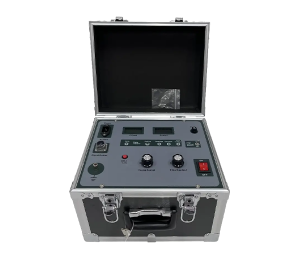TEL:
+86-0312-3189593
 English
English

Telephone:0312-3189593

Email:sales@oil-tester.com

-
 Afrikaans
Afrikaans -
 Albanian
Albanian -
 Amharic
Amharic -
 Arabic
Arabic -
 Armenian
Armenian -
 Azerbaijani
Azerbaijani -
 Basque
Basque -
 Belarusian
Belarusian -
 Bengali
Bengali -
 Bosnian
Bosnian -
 Bulgarian
Bulgarian -
 Catalan
Catalan -
 Cebuano
Cebuano -
 China
China -
 China (Taiwan)
China (Taiwan) -
 Corsican
Corsican -
 Croatian
Croatian -
 Czech
Czech -
 Danish
Danish -
 Dutch
Dutch -
 English
English -
 Esperanto
Esperanto -
 Estonian
Estonian -
 Finnish
Finnish -
 French
French -
 Frisian
Frisian -
 Galician
Galician -
 Georgian
Georgian -
 German
German -
 Greek
Greek -
 Gujarati
Gujarati -
 Haitian Creole
Haitian Creole -
 hausa
hausa -
 hawaiian
hawaiian -
 Hebrew
Hebrew -
 Hindi
Hindi -
 Miao
Miao -
 Hungarian
Hungarian -
 Icelandic
Icelandic -
 igbo
igbo -
 Indonesian
Indonesian -
 irish
irish -
 Italian
Italian -
 Japanese
Japanese -
 Javanese
Javanese -
 Kannada
Kannada -
 kazakh
kazakh -
 Khmer
Khmer -
 Rwandese
Rwandese -
 Korean
Korean -
 Kurdish
Kurdish -
 Kyrgyz
Kyrgyz -
 Lao
Lao -
 Latin
Latin -
 Latvian
Latvian -
 Lithuanian
Lithuanian -
 Luxembourgish
Luxembourgish -
 Macedonian
Macedonian -
 Malgashi
Malgashi -
 Malay
Malay -
 Malayalam
Malayalam -
 Maltese
Maltese -
 Maori
Maori -
 Marathi
Marathi -
 Mongolian
Mongolian -
 Myanmar
Myanmar -
 Nepali
Nepali -
 Norwegian
Norwegian -
 Norwegian
Norwegian -
 Occitan
Occitan -
 Pashto
Pashto -
 Persian
Persian -
 Polish
Polish -
 Portuguese
Portuguese -
 Punjabi
Punjabi -
 Romanian
Romanian -
 Russian
Russian -
 Samoan
Samoan -
 Scottish Gaelic
Scottish Gaelic -
 Serbian
Serbian -
 Sesotho
Sesotho -
 Shona
Shona -
 Sindhi
Sindhi -
 Sinhala
Sinhala -
 Slovak
Slovak -
 Slovenian
Slovenian -
 Somali
Somali -
 Spanish
Spanish -
 Sundanese
Sundanese -
 Swahili
Swahili -
 Swedish
Swedish -
 Tagalog
Tagalog -
 Tajik
Tajik -
 Tamil
Tamil -
 Tatar
Tatar -
 Telugu
Telugu -
 Thai
Thai -
 Turkish
Turkish -
 Turkmen
Turkmen -
 Ukrainian
Ukrainian -
 Urdu
Urdu -
 Uighur
Uighur -
 Uzbek
Uzbek -
 Vietnamese
Vietnamese -
 Welsh
Welsh -
 Bantu
Bantu -
 Yiddish
Yiddish -
 Yoruba
Yoruba -
 Zulu
Zulu
1 月 . 29, 2025 02:55
Back to list
power quality analysis
Transformers are vital components in electrical systems, requiring regular maintenance to ensure operational reliability and efficiency. One critical aspect of transformer maintenance is the analysis of transformer oil through Dissolved Gas Analysis (DGA). This process helps in early detection of faults by analyzing the gases dissolved in the transformer oil, providing valuable insights into the transformer’s internal condition.
Beyond the technical analysis, an authoritative resource on DGA also addresses the implications of ignoring early warning signs detected through gas analysis. Ignoring such indicators can lead to catastrophic transformer failures, causing outages, costly repairs, and potential risks to public safety. Trustworthiness in DGA comes from the consistent and transparent reporting of findings, upholding industry best practices, and providing clear action plans for maintenance and repair activities. For companies specializing in transformer products, offering comprehensive DGA services can be a significant value addition. Providing accurate and actionable insights based on DGA enhances customer trust in their transformers' reliability and longevity. Expertise in this domain not only leads to preventive maintenance strategies but also contributes to optimizing transformer operations and extending their lifecycle. To build authority and trust online, it's important for companies to share case studies reflecting real-life applications and benefits of DGA. Such content can guide potential customers through the process of problem identification, diagnosis, and resolution, showcasing the real-world impact of regular transformer oil analysis. Offering educational resources and training on DGA can further establish a reputation for expertise and a commitment to excellence in transformer maintenance. In conclusion, DGA analysis of transformer oil is a critical, specialized service area where experience and expertise directly impact the equipment's operational longevity and reliability. By adhering to established standards and best practices, organizations can ensure they are trusted providers, capable of delivering superior service and actionable insights to keep electrical systems running smoothly. Sharing this expertise online attracts clients seeking reliability and adds significant credibility to the service provider in the competitive digital space.


Beyond the technical analysis, an authoritative resource on DGA also addresses the implications of ignoring early warning signs detected through gas analysis. Ignoring such indicators can lead to catastrophic transformer failures, causing outages, costly repairs, and potential risks to public safety. Trustworthiness in DGA comes from the consistent and transparent reporting of findings, upholding industry best practices, and providing clear action plans for maintenance and repair activities. For companies specializing in transformer products, offering comprehensive DGA services can be a significant value addition. Providing accurate and actionable insights based on DGA enhances customer trust in their transformers' reliability and longevity. Expertise in this domain not only leads to preventive maintenance strategies but also contributes to optimizing transformer operations and extending their lifecycle. To build authority and trust online, it's important for companies to share case studies reflecting real-life applications and benefits of DGA. Such content can guide potential customers through the process of problem identification, diagnosis, and resolution, showcasing the real-world impact of regular transformer oil analysis. Offering educational resources and training on DGA can further establish a reputation for expertise and a commitment to excellence in transformer maintenance. In conclusion, DGA analysis of transformer oil is a critical, specialized service area where experience and expertise directly impact the equipment's operational longevity and reliability. By adhering to established standards and best practices, organizations can ensure they are trusted providers, capable of delivering superior service and actionable insights to keep electrical systems running smoothly. Sharing this expertise online attracts clients seeking reliability and adds significant credibility to the service provider in the competitive digital space.
Previous:
Latest news
-
Using Distillation Range Testers in the Food and Beverage IndustryNewsApr.16,2025
-
The Impact of IoT on Distillation Range Tester PerformanceNewsApr.16,2025
-
The Best Distillation Range Testers for Extreme ConditionsNewsApr.16,2025
-
How Distillation Range Testers Save Time and MoneyNewsApr.16,2025
-
Distillation Devices for Advanced Separation TechniquesNewsApr.16,2025
-
Common Mistakes to Avoid When Using a Distillation Range TesterNewsApr.16,2025



